Profile: Miguel Ángel Torres Ferreras Spain’s 2024 Artisan of the Year
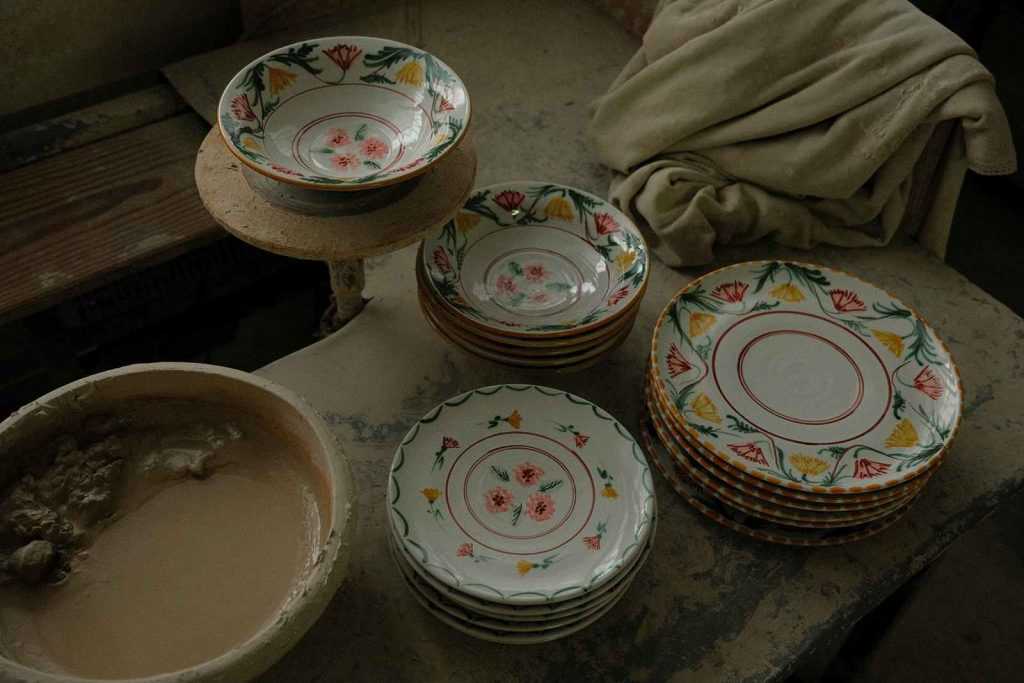
Above: Feria Collection by Torres Ferreras and Sebastián Gallego
Briefly describe your background and the beginnings of your studio.
Torres Ferreras is the brand of the pottery workshop of Miguel Ángel Torres Ferreras, who first sat at the wheel at the age of 11 in a family member’s pottery workshop. In his hometown of La Rambla (Córdoba, Spain), a town with a long pottery tradition, it was common practice for children then. At age twelve, his family had to emigrate to Barcelona for work. Still, Miguel Ángel returned to his village every summer to continue learning the trade, eventually becoming an apprentice and, later, a journeyman at 24.
After working in various potteries in his town, he opened his workshop in 1990 with several partners. In 1999, he continued running this workshop alone and as a family business, which the family continues to run today.
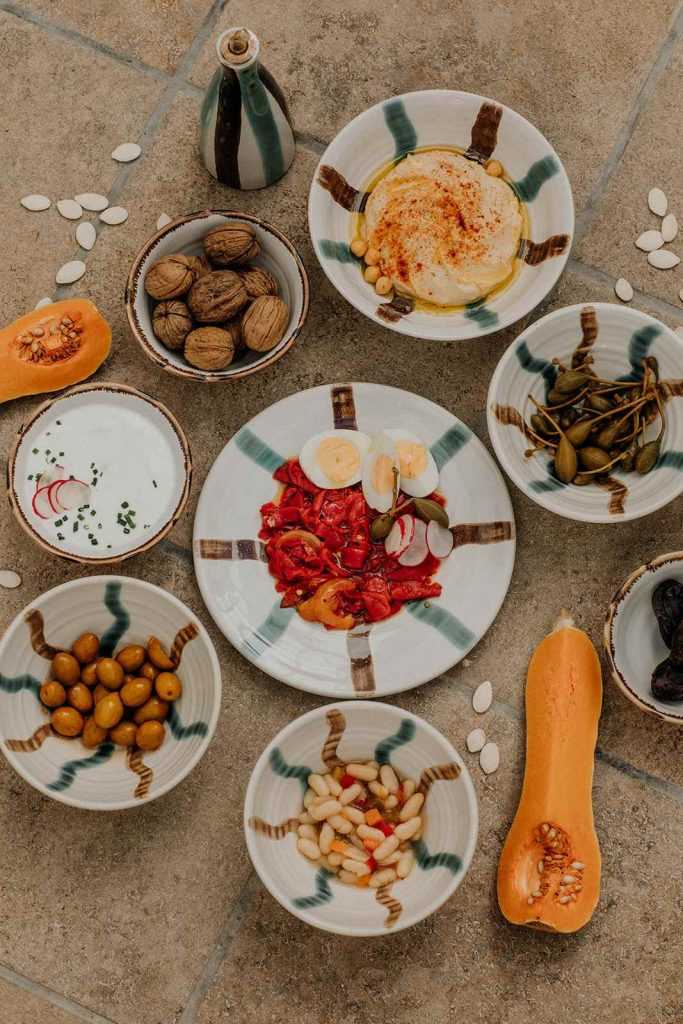
Above: Califal Collection by Torres Ferreras
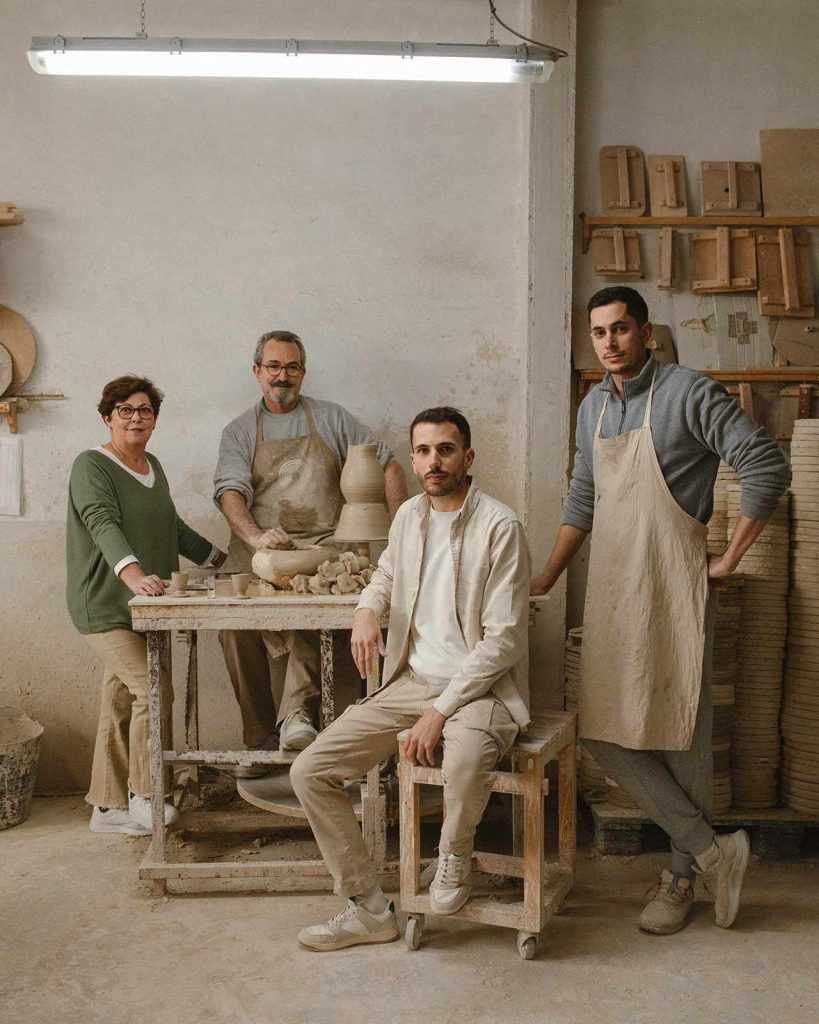
Technique
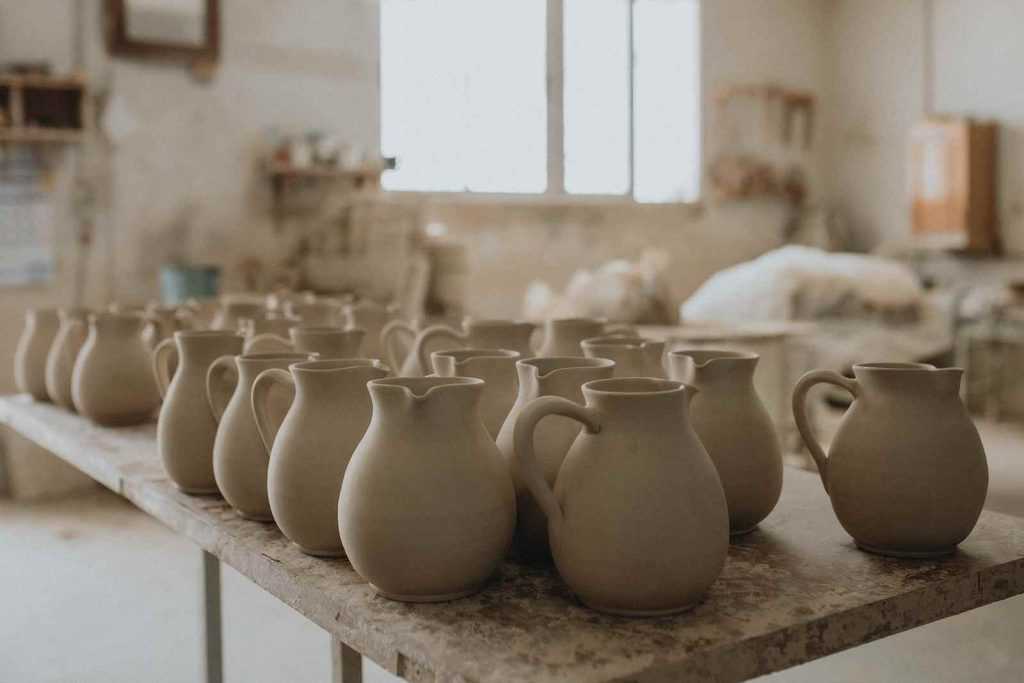
What are you best known for?
Torres Ferreras is a pottery workshop specializing in tableware and household items, wheel-thrown in hard stoneware and finished with high-temperature glazes. Our signature and identity is the potter’s wheel; it is 100% hand-crafted work in a material typically found only in industrial rather than hand-crafted pieces. Therefore, Torres Ferreras combines a high-quality, utilitarian, and durable material with creative, versatile, and hand-crafted production.
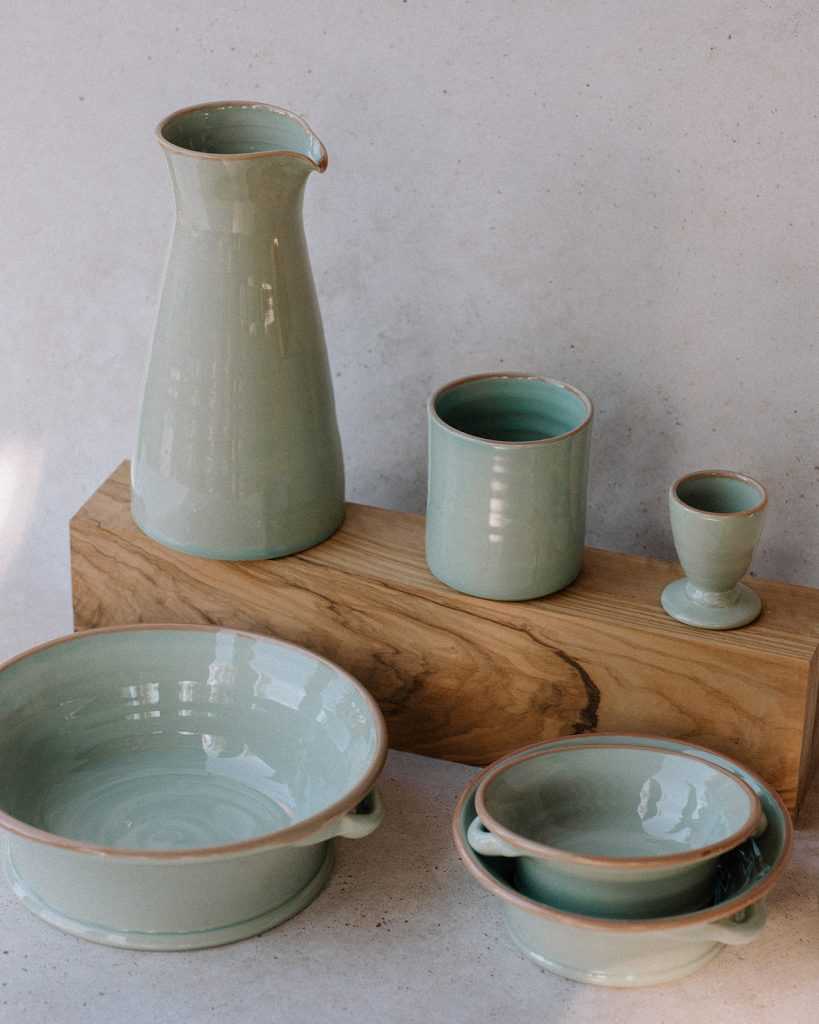
Above: Agua Collection by Torres Ferreras
Are there any Spanish or regional traditions or references regarding your technique, design, or inspiration?
All our pieces and designs draw on the traditional shapes and volumes of Rambleña pottery, as well as the patterns of our decorations, which we strive to revive, with a contemporary eye, the plant motifs and borders of popular Andalusian ceramics. We also incorporate local clay, not as a base material for our pieces, but to create our glazes and decorations.
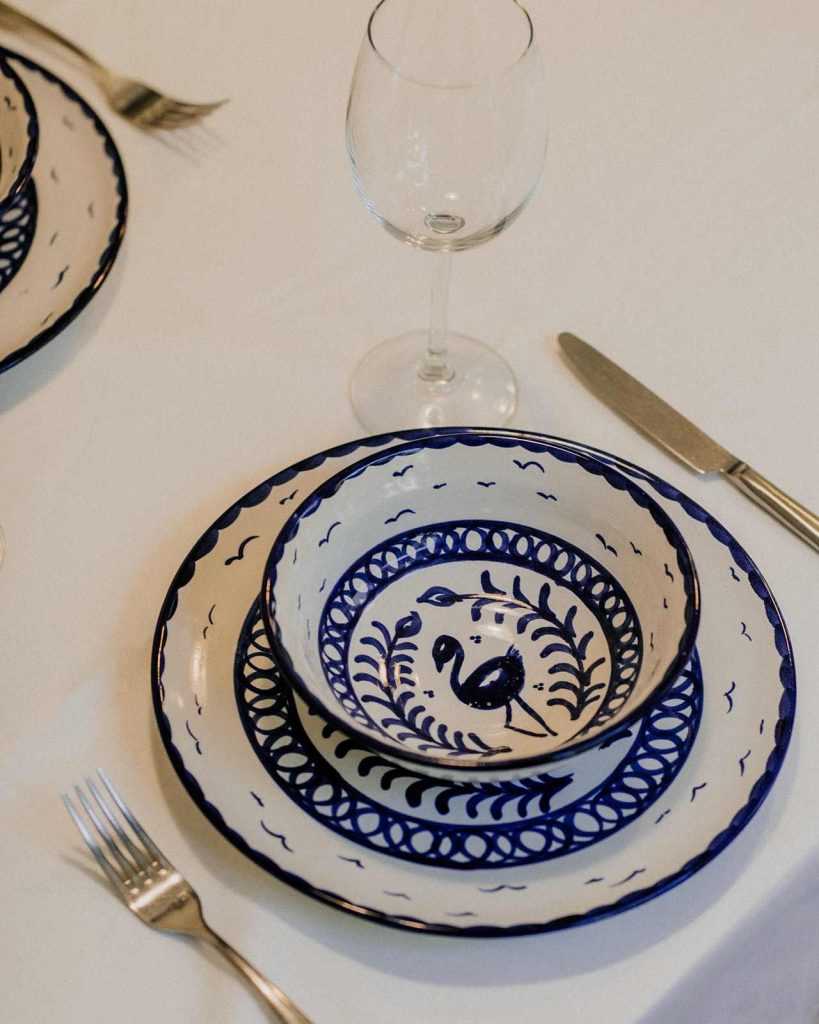
Above: Grambleña Collection by Torres Ferreras
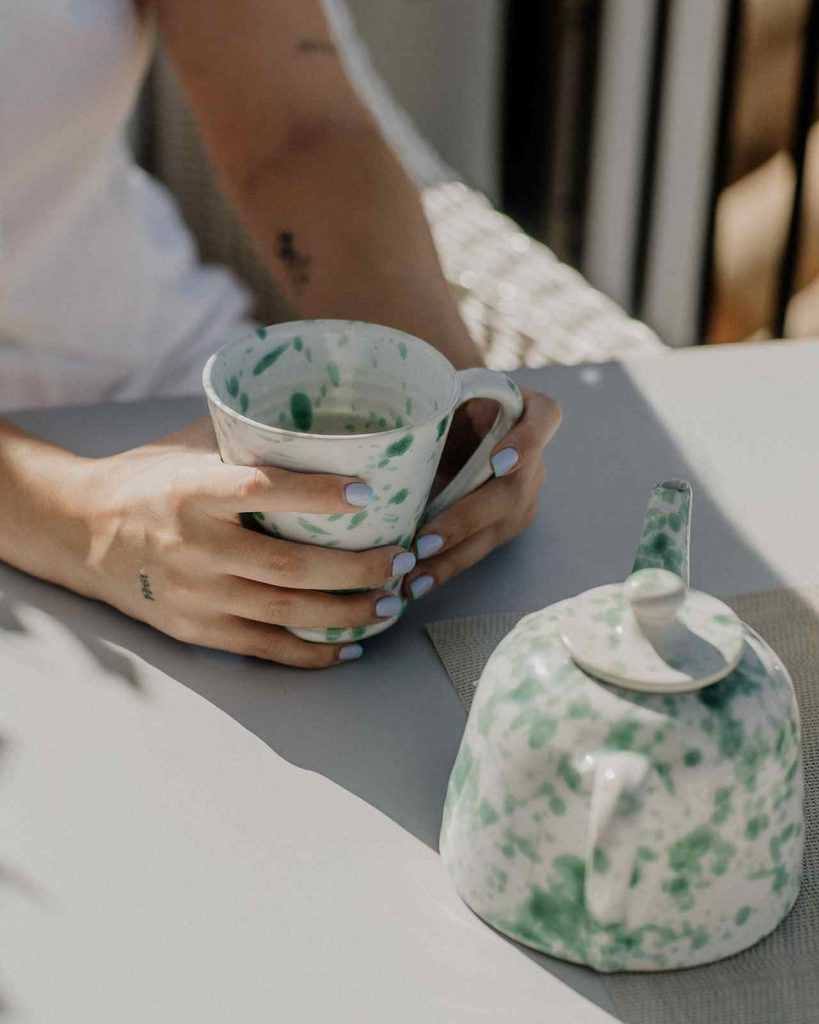
Above: Goteado verde Collection by Torres Ferreras
Sustainability
Do you integrate any environmental considerations into your processes?
Artisanship can be considered a paradigm of sustainability. Still, any current production, even the most artisanal, leaves an inevitable environmental footprint, which we try to minimize as much as possible. To this end, as I mentioned, we use raw materials that are as local as possible in our creations, which we continually recycle. By having 90% manual processes in our workshop, we significantly reduce energy consumption. Furthermore, we try to position ourselves in purely artisanal markets where work is usually made to order, producing what is sold and needed, rather than in large runs that reduce prices and end up as waste.
The Market in Spain
What is the importance, if any, of craft markets and organizations as a showcase for your work?
We believe artisanship must be disseminated, explained, and demonstrated so the public can understand it. In the past, this was barely necessary because people, in general, knew how things were made, especially in rural areas, and, in many cases, artisanship was the only known way of doing things. Today, however, we have forgotten the origin and the costs of making them and bringing them to our homes. That is why specialized craft markets and organizations and associations whose purpose is to preserve and disseminate artisanship are essential for the survival of our trades.
By its nature, artisanship is and should be composed of small workshops that can never have the voice of the multinationals that bombard us daily with messages of compulsive and devalued buying. Therefore, uniting through specialized markets and associations is the only way to build strength.
How can the government—local, regional, or national—promote craftsmanship and the work of artisans in Spain? Is there anything that could be improved?
As stated, we need a lot of outreach. In Spain, governments should take on this task, in addition to the artisans and organizations themselves. Artisanship has shaped Spain’s identity and image throughout history. It is the true Marca España (Spanish Brand). Also, Article 130.1 of the Spanish Constitution stipulates that public authorities shall attend to the modernization and development of all economic sectors, among which artisanship is expressly mentioned, along with livestock and fishing, to equalize the standard of living of all Spanish men and women.
There have been recent initiatives and worthy initiatives. However, there is still a lack of understanding of what “artisanship” means and the value and idiosyncrasy of these trades to protect them. How can this be done? Reconsidering the type and percentage of taxes on craft activity, for example, financial support, and proper indexing and categorization of craft activity that allows for a valid accounting of what the craft sector generates and needs are pending concerns.
Distinctions and Plans
Are there any notable recent events, recognitions (awards) or developments?
Miguel Ángel Torres Ferreras was officially recognized as a Master Artisan in the pottery trade by the Andalusian regional government in 2014. This recognition and accreditation are awarded following a series of distinctions. In 2020, he received the Andalusian Crafts Award, and in 2024, Torres Ferreras received the National Crafts Award from the Ministry of Industry of the Government of Spain.
What are the plans for the company in terms of 1) creative projects 2) market expansion?
On the artistic front, we are already immersed in collaborative projects with various creatives from other disciplines to create handcrafted ceramic products that offer added value from a design perspective. We are also planning a long-term exhibition project with which we would like to celebrate the recognition of the National Crafts Award.
Regarding market expansion, we never intend to expand as a company in the current sense of the term. Our main objective is to continue offering increasingly necessary artisanal solutions to businesses or individuals who need them. Artisanship has clear boundaries in terms of quantities, production capacity, etc. We want to reach increasingly specific markets where the purest artisanship is needed and valued, for example, in the hospitality and fine dining sectors.
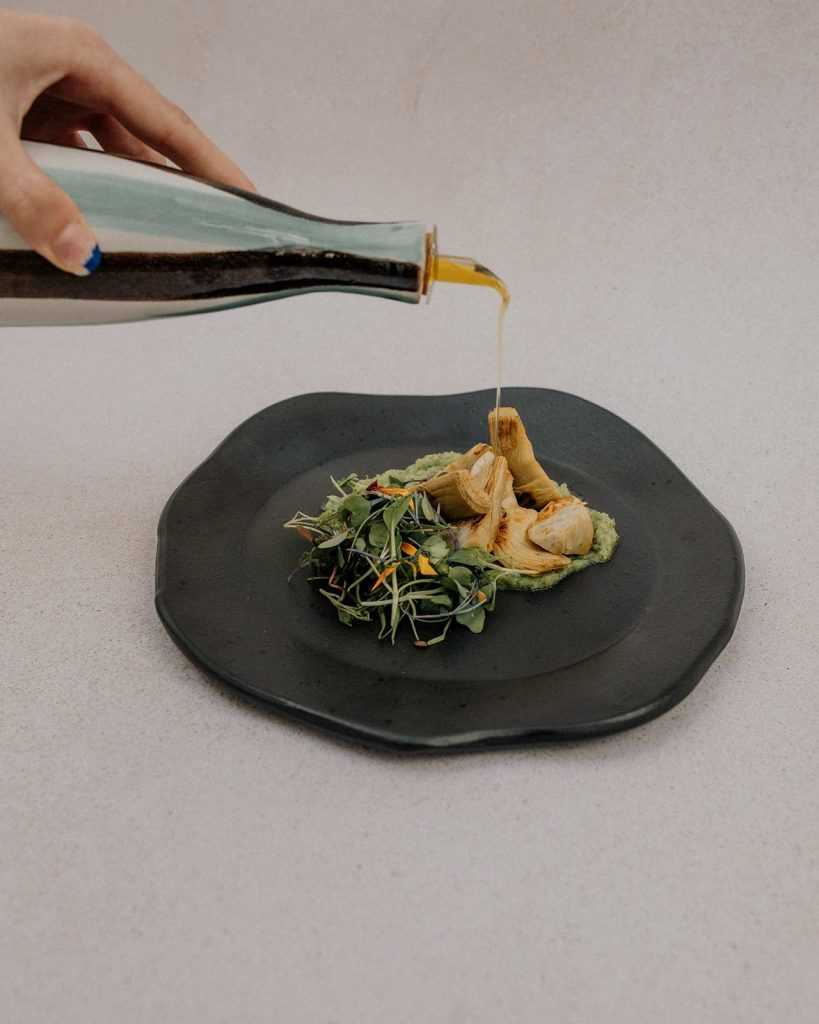
Above: Matte Black Collection by Torres Ferreras
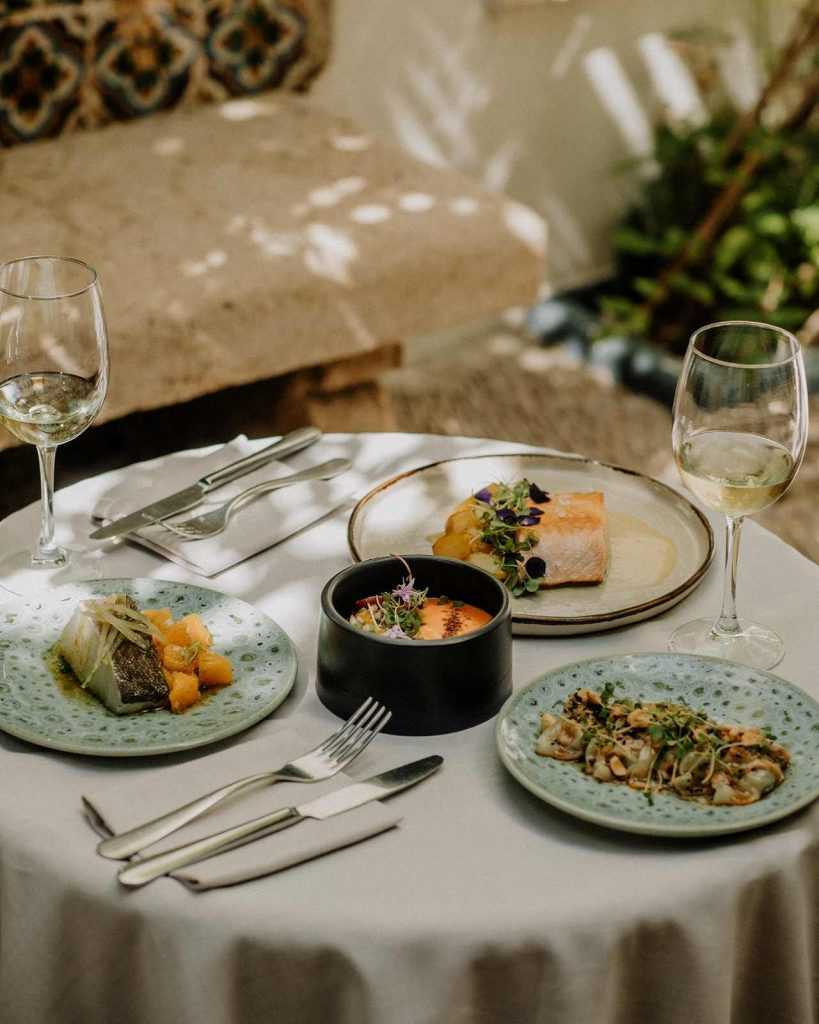
Above: Different Torres Ferreras plates in the Hotel Balcón de Córdoba
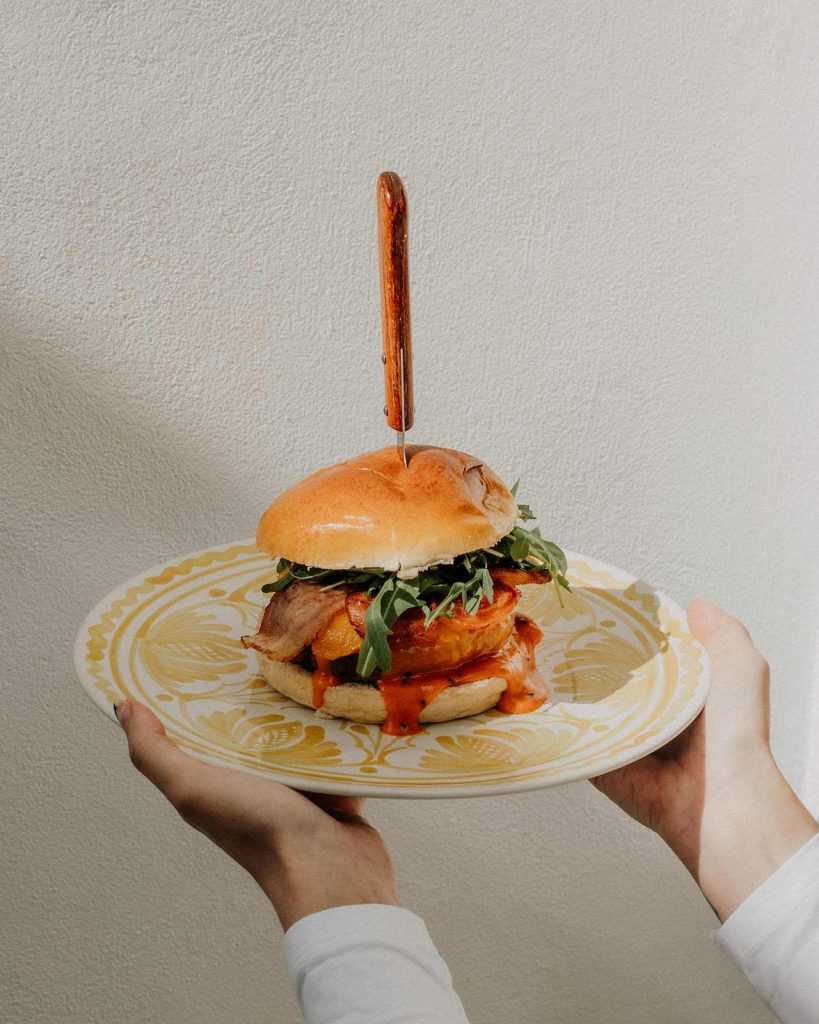
Above: Pintora Collection by Torres Ferreras
What is your dream project?
To continue making a living from our beautiful profession for a long time.
Place
What city do you live in?
La Rambla. It is a beautiful pottery town in the province of Córdoba, in the heart of Andalusia. With 7,500 inhabitants, there are currently around 60 ceramic workshops. Artisanship, creativity, and art permeate every corner in such an innate and natural way that those who live here don’t even notice.
Are there must-see places in your city or community that you think visitors interested in art, crafts, design, or interior and architectural traditions should see (hotels, museums, shops, buildings, markets, etc.)?
In La Rambla, you must, of course, visit the Ceramics Museum, which offers a journey through the city’s pottery tradition since ancient times. It also displays the winning pieces from the international La Rambla ceramic competitions, featuring true masterpieces of traditional and contemporary ceramics from many parts of the world. To complete the ceramics experience in the town, a visit to a traditional pottery workshop with its characteristic architecture and a modern one, like ours, where we regularly offer guided tours, is a must. Furthermore, La Rambla is a beautiful and historic town, just a 30-minute drive from the four-time World Heritage city of Córdoba, where you can visit civil and religious monuments of historical and artistic value.
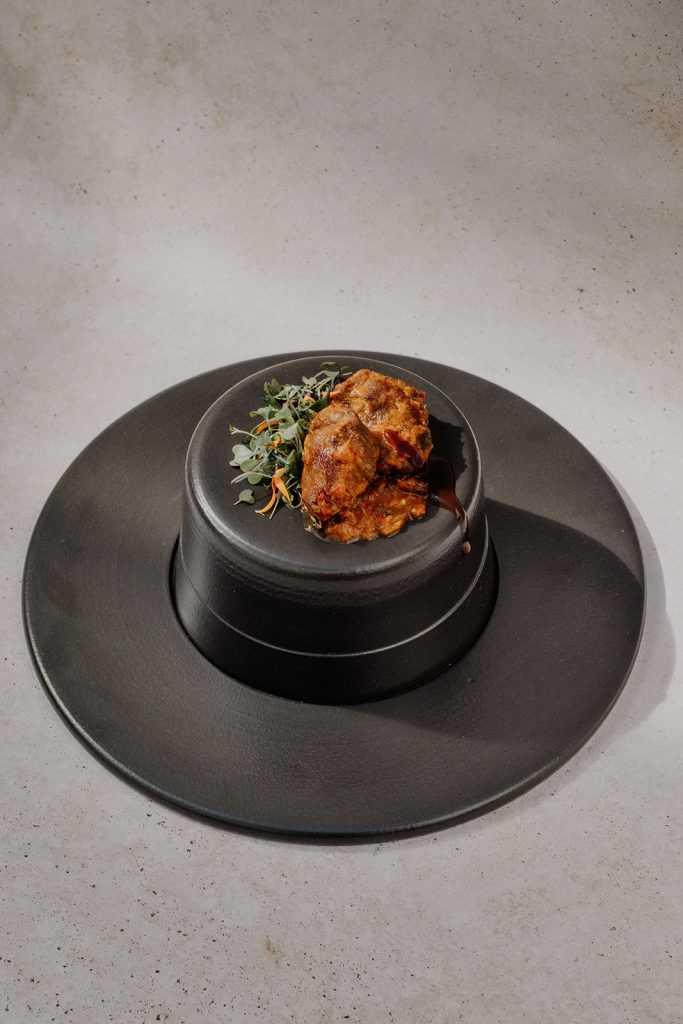
Above: Cordoban hat shaped plate by Torres Ferreras
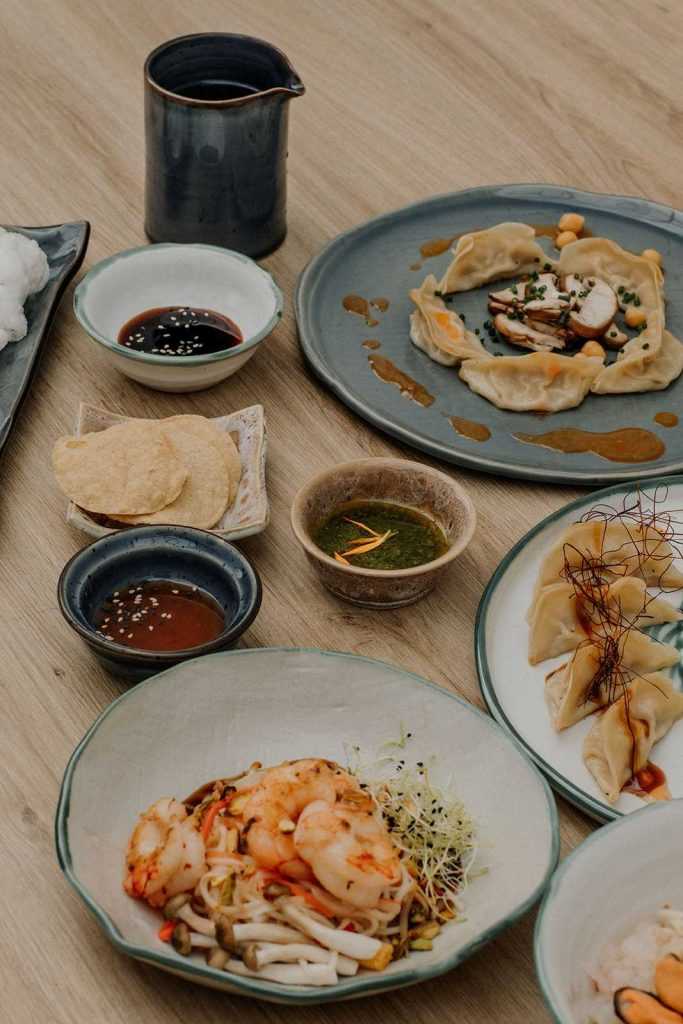
Photography: Revel Studio
